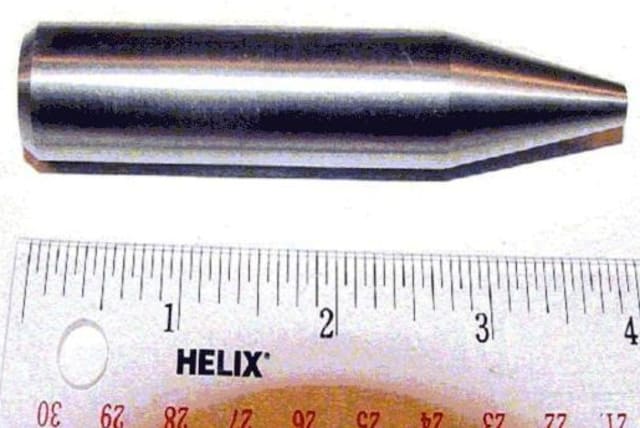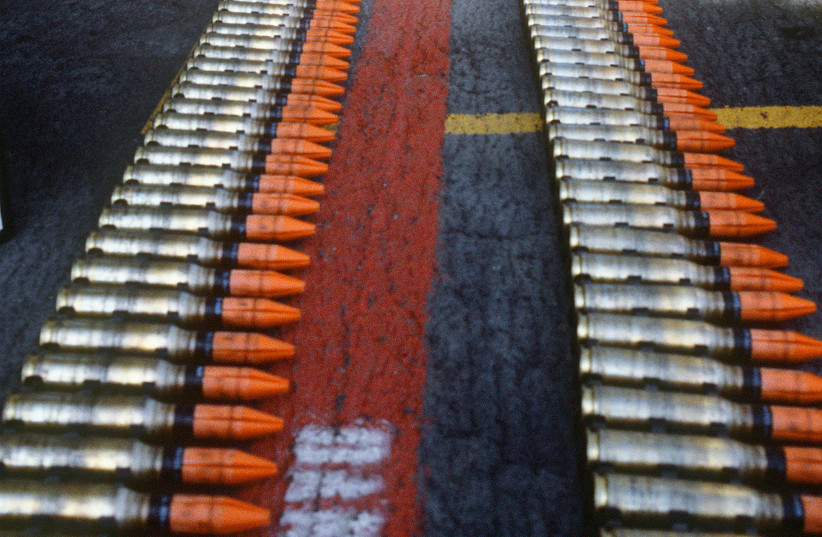Putin vows response to UK's decision to send depleted uranium shells to Ukraine

The depleted uranium shells that the UK is supplying to Ukraine were developed by the US during the Cold War to pierce Soviet tanks, some of which are still used by Russia.
Russian President Vladimir Putin said his country has hundreds of thousands of depleted uranium shells in response to the United Kingdom's decision to supply such shells to Ukraine, Russian state media outlet Interfax reported on Saturday.
"I must say that Russia, of course, has something to answer. Without exaggeration, we have hundreds of thousands, hundreds of thousands of such shells. We have not used them yet," Putin told Russian TV channel Rossiya-24.
Putin alleged that the uranium shells "generate the so-called radiation dust" and falsely claimed that although they are not weapons of mass destruction, they contain a "nuclear component."
West trying to prolong Russia-Ukraine War, Putin alleges
He said that Ukrainians should consider how using these shells would affect their own people and environment and alleged that Western nations are trying to prolong the conflict by sending weapons to Ukraine.
"From the point of view of the logic of those who provoked this conflict and are trying to maintain it at any cost, this is probably the right decision (to supply weapons). In my opinion, this will only lead to a greater tragedy."
Utility of depleted uranium ammunition
The depleted uranium shells that the UK is supplying to Ukraine were developed by the US during the Cold War to pierce Soviet tanks, including the T-72, which has been used by Russia in its ongoing invasion of its neighbor, according to PBS.
Depleted uranium is a byproduct of uranium enrichment and is required in order to develop nuclear weapons, but while the rounds have some radioactive properties, they are incapable of generating a nuclear reaction like a nuclear weapon would, Edward Geist, a nuclear expert and policy researcher at the California-based think tank the RAND Corporation said, according to the PBS report.
A 2003 study in the peer-reviewed journal Health Physics noted, however, that “The aerosol produced during impact and combustion of depleted uranium munitions can potentially contaminate wide areas around the impact sites or can be inhaled by civilians and military personnel.”
Depleted uranium is extremely dense, much more so than lead, making it a valuable weapon against armored targets.
“It’s so dense and it’s got so much momentum that it just keeps going through the armor — and it heats it up so much that it catches on fire,” Geist said, according to PBS.
When fired, a depleted uranium round becomes “essentially an exotic metal dart fired at an extraordinarily high speed,” said RAND senior defense analyst Scott Boston, according to the report.
“Make no mistake, this is yet another straw man through which the Russians are driving a stake,” said National Security Council spokesperson John Kirby, the report added.
Jerusalem Post Store
`; document.getElementById("linkPremium").innerHTML = cont; var divWithLink = document.getElementById("premium-link"); if (divWithLink !== null && divWithLink !== 'undefined') { divWithLink.style.border = "solid 1px #cb0f3e"; divWithLink.style.textAlign = "center"; divWithLink.style.marginBottom = "15px"; divWithLink.style.marginTop = "15px"; divWithLink.style.width = "100%"; divWithLink.style.backgroundColor = "#122952"; divWithLink.style.color = "#ffffff"; divWithLink.style.lineHeight = "1.5"; } } (function (v, i) { });

